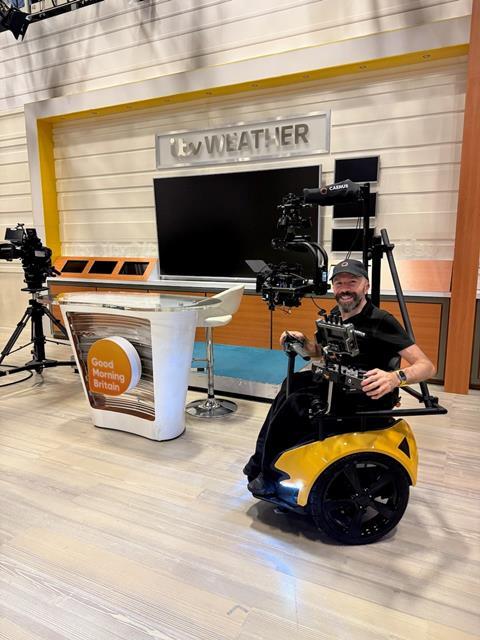World-first product aims to remove barriers for people with disabilities

Caerus has launched a world-first wheelchair camera system.
Founded by award-winning disabled filmmaker Chris Lynch, Caerus aims to remove barriers to filmmaking for people with disabilities. It can work in single operator mode to control both the gimbal and focus, or these functions can be handed off to other assistant camera operators on set. The latter gives the operator the ability to focus on the movement of the system and other tasks such as a tracking subjects or talent. It also has a stabilised handheld option.
To do this, Caerus uses a state-of-the-art self balancing wheelchair called the Genny Zero, an Italian-designed, Swiss-made wheelchair that has a top speed of 20 kmph and a range of 25 km. Given it has only two wheels, it can fit in spaces smaller than most conventional electric chairs and the advantage of using this particular device means that Caerus operators can now compete with some of the industry norms such as Steadicam - outperforming it with its speed and long running time as its payload is distributed on the chair, not the user.
Ronford Baker, RED, CVP and DJI as well as Ignite Digi, Ottobock, NiSi and BlkBird are among the companies to have co-created the technology and support its development.
There are three versions of Caerus: Caerus Vista, an all round indoor and outdoor model, capable of handling most production types and an operating wireless range of up to 6km; Caerus Studio - designed for indoor studio use for heavy camera and lens packages; and Caerus Rover - an all in one outdoor studio, for interviews with on board lighting, LiveU, on board power, teleprompter and a custom umbrella to cover system and talent.
Caerus is currently has a waiting list of orders on launch due to a small initial production run.





No comments yet